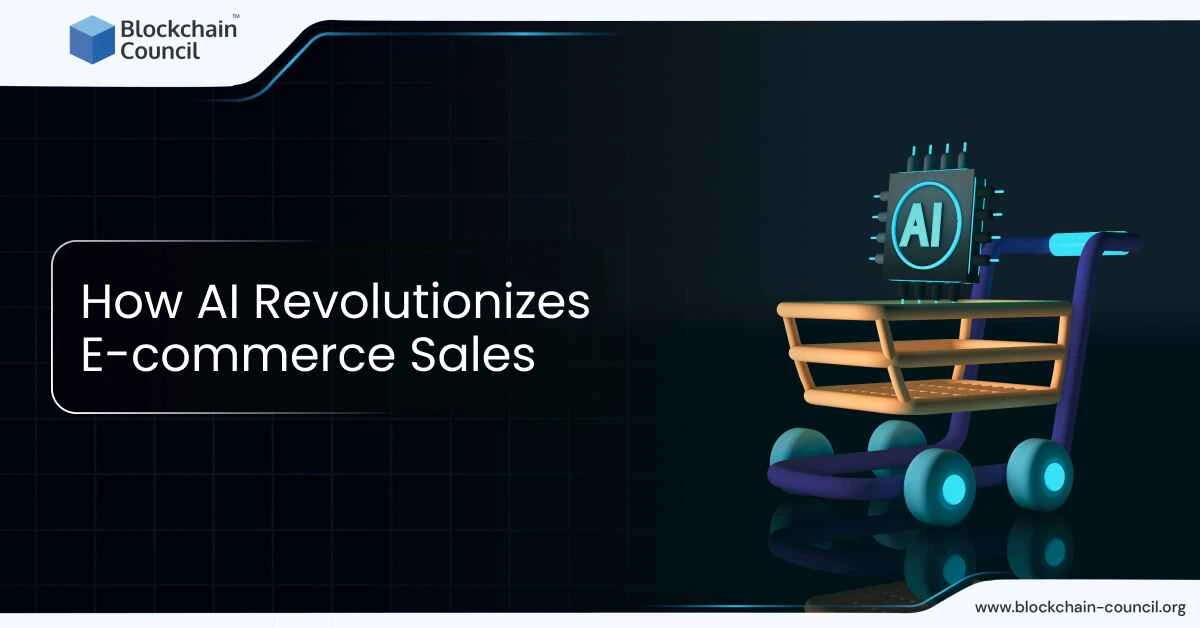
- Blockchain Council
- September 11, 2024
AI basically means machines performing tasks. They aim to do the tasks typically requiring human intelligence, such as understanding language, identifying images, and making decisions. AI experts develop systems that can learn and adjust to new information. The need for AI professionals is expanding quickly as companies and research institutions explore AI’s applications.
How to Become an AI Expert?
If you want to become an AI expert, the journey can be rewarding but requires a structured approach. Here’s a guide to becoming an AI expert:
Understand the Basics of AI
Start with the basics, which are important. AI aims to build systems that can handle tasks that typically need human smarts, such as recognizing images, understanding speech, making choices, and converting languages. Machine learning, deep learning, neural networks, and natural language processing are key areas within AI. So you must learn about them.
There are many resources online, and books such as “Artificial Intelligence: A Modern Approach” by Stuart Russell and Peter Norvig offer a detailed introduction to AI fundamentals. For a structured path, consider certifications like the Certified Artificial Intelligence (AI) Expert™ to strengthen your foundational understanding.
Learn the Required Skills
To excel in AI, you need a solid background in multiple areas:
- Mathematics and Statistics: AI depends heavily on mathematical principles such as linear algebra, calculus, probability, and statistics. These abilities assist you in grasping how algorithms function and how to improve them efficiently.
- Programming: Python is widely used in AI because of its easy-to-read syntax and numerous libraries. Learn libraries such as NumPy, Pandas, and TensorFlow for data handling, machine learning models, and deep learning frameworks. Certifications like the Certified AI-powered Coding Expert™ can help you develop these vital programming abilities.
- Data Science: AI is driven by data, so mastering data handling, analysis, and visualization is crucial. Skills in data preprocessing, statistical analysis, and exploratory data analysis are valuable because they prepare data for AI models.
Explore AI Specializations
AI is a broad field with various specializations. Exploring various fields helps you discover your main interests:
- Machine Learning: Focuses on building algorithms that take its senses from data. ML can make predictions or decisions.
- Deep Learning: This section of machine learning deals with neural networks and advanced models.
- Natural Language Processing (NLP): This one teaches machines to understand and communicate using human languages.
- Computer Vision: Teaches machines to analyze and interpret visual inputs. These include images and videos.
Each area offers different applications and career paths. Exploring these fields can help you choose a direction that matches your career interests. Certifications like Certified Chatbot Expert™ can help guide your specialization, especially if you are curious about AI applications.
Gain Hands-On Experience with Projects
Understanding theory isn’t enough; practical experience is also essential. Engage in real-world AI projects, starting with beginner tasks like simple chatbots or data analysis tools. As you build confidence, take on more complex projects such as developing AI models for image recognition or natural language processing.
Use platforms such as GitHub to display your projects. This helps demonstrate your skills and allows potential employers to observe your progress. Expert-guided certifications like the Certified Artificial Intelligence (AI) Developer™ encourage practical learning, which is vital for mastering AI.
Participate in Competitions and Hackathons
Competitions on Kaggle or hackathons offer an excellent environment to test your skills, solve real-world problems, and learn from others. These events offer chances to network with AI enthusiasts, meet potential employers, and expand your portfolio. Mentioning certifications like the Certified ChatGPT Expert can also highlight your dedication to AI.
Build a Solid Professional Network
Building connections is an important aspect of advancing as an AI specialist. Connect with professionals at AI conferences, webinars, and online forums. Participate in discussions, share your insights, and learn from others in the field. Websites such as LinkedIn, GitHub, and AI-focused groups are useful for creating relationships that can support your career growth.
Networking is crucial, and joining recognized organizations like the Blockchain Council connects you with a global network of professionals. By becoming a Blockchain Council member, you join over 30,000 certified experts, which can be an asset as you grow in AI.
Continue Learning and Stay Updated
AI is a constantly evolving field, and staying current is vital. Stay updated with recent research, read academic papers, and keep track of ongoing advancements in AI. Enroll in advanced courses, certifications, or even master’s programs to expand your expertise. Continuous learning helps you adapt to changes and keep your skills up-to-date. Certifications like the Certified Generative AI Expert™ can help you stay ahead of industry changes and ensure your skills remain relevant.
Consider Advanced Education and Certifications
Although not mandatory, advanced education, such as a master’s degree in AI, computer science, or related areas, can deepen your understanding. Earning certifications from sites like the Blockchain Council boosts your credibility and proves your skills to future employers. While pursuing higher education, combining it with specialized certifications like the Master Artificial Intelligence (AI) Learning Path can give you well-rounded expertise valued by employers. These certifications validate your advanced skills and show a commitment to ongoing professional development.
Conclusion
Becoming an AI expert involves a combination of foundational learning, practical experience, and continuous adaptation to new technologies. By following these steps, engaging in projects, choosing a specialization, obtaining certifications, and connecting with the AI community, you can equip yourself with the skills needed for a successful career in AI. Though challenging, this path offers rewarding opportunities and vast possibilities.





































































 Guides
Guides News
News Blockchain
Blockchain Cryptocurrency
& Digital Assets
Cryptocurrency
& Digital Assets Web3
Web3 Metaverse & NFTs
Metaverse & NFTs
